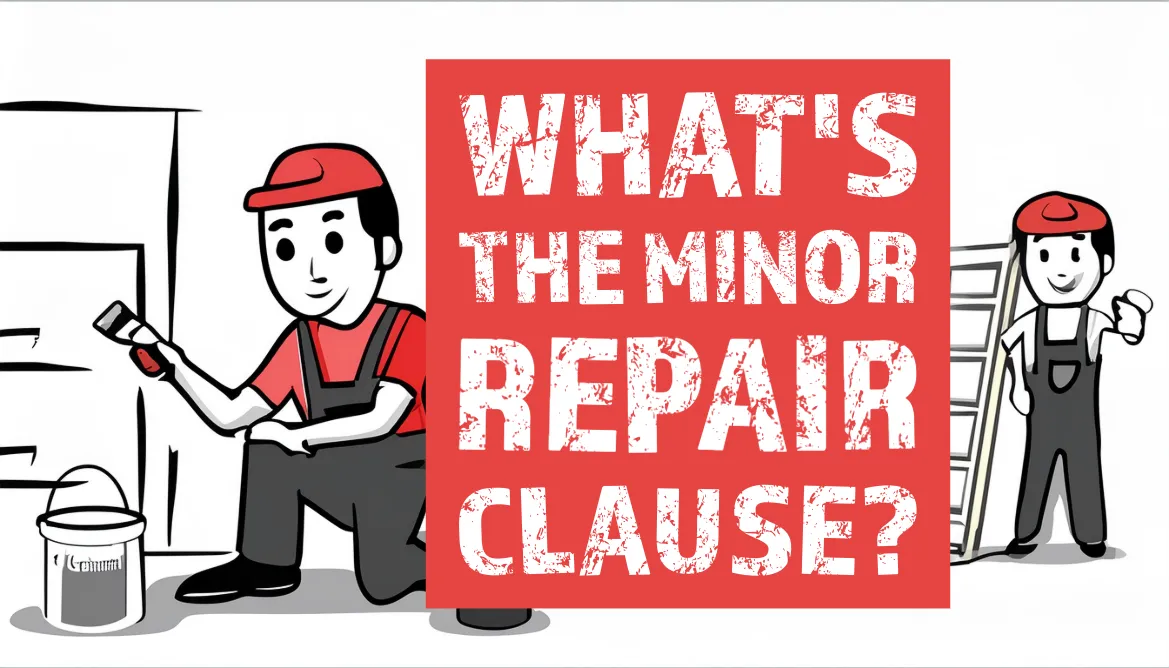The Minor Repair Clause is a provision in the lease agreement that articulates who is responsible and the amount cap agreed upon for carrying out minor repairs on the property, fixtures, and appliances. You can use it when the cost of repairs is below a certain amount, typically specified in the lease agreement.
Understanding the Minor Repair Clause in Tenancy Agreements
When you’re renting a property, it’s crucial to understand the terms of your tenancy agreement. One clause that often causes confusion is the Minor Repair Clause. This clause is particularly relevant in Singapore, where landlords often include it in their contracts.
But what exactly is the Minor Repair Clause, and when can you use it? Let’s delve into the details
What is the Minor Repair Clause?
The Minor Repair Clause is a provision in a tenancy agreement that stipulates the tenant is responsible for minor repairs and maintenance of the rented property. The definition of ‘minor repairs’ can vary, but it typically includes things like changing light bulbs, fixing leaking taps, or repairing minor damage to walls or floors.
It’s important to note that the Minor Repair Clause is not a legal requirement in Singapore. It’s a contractual term that landlords can choose to include in their tenancy agreements. If you’re a tenant, it’s crucial to understand the implications of this clause before you sign your contract.
When Can the Minor Repair Clause Be Used?
You can invoke the Minor Repair Clause whenever a minor repair or maintenance issue arises in the rented property. The tenant is then responsible for fixing the issue or paying for the repair. However, there are some limitations to this clause.
Firstly, the Minor Repair Clause does not allow landlords to make tenants responsible for major repairs or maintenance. This includes things like structural repairs, major plumbing or electrical work, or the replacement of the appliances provided by the landlord. Typically, these are the landlord’s responsibility unless the tenant’s negligence or misuse caused the damage.
Secondly, the Minor Repair Clause does not allow tenants to be held responsible for wear and tear.
Wear and tear is the natural deterioration of a property over time, and it’s the landlord’s responsibility to maintain the property and keep it in a habitable condition.
How to Navigate the Minor Repair Clause as a Tenant
If you’re a tenant in Singapore, it’s important to understand the Minor Repair Clause and how it can affect you. Here are some tips to help you navigate this clause:
1. Read your tenancy agreement carefully: Before you sign your tenancy agreement, make sure you understand all the terms, including the Minor Repair Clause. If you’re unsure about anything, ask your property agent for clarification.
2. Negotiate the terms: If you’re not comfortable with the amount stated in the Minor Repair Clause, you can try to negotiate the amount with your landlord. For example, you could ask for a cap on the cost of minor repairs or ask the landlord to be responsible for certain types of repairs.
3. Document the condition of the property: When you move in, take photos of the property and note any existing damage. This can help protect you if there’s a dispute about who is responsible for a repair.
4. Landlord Warranty: Request that the first month be under landlord warranty: It’s common practice to include the first 30 days, known as the defect-free period, under the landlord’s responsibility as a clause or part of the Minor Repair Clause.
Conclusion
The Minor Repair Clause is a common feature in Singapore tenancy agreements, but it can be a source of confusion for tenants. It’s important for tenants to understand what this clause means and when they can use it to protect their rights.
Remember, the key to a successful tenancy is clear communication. If you’re unsure about any aspect of your tenancy agreement, don’t hesitate to ask your property agent for clarification. And if you’re not comfortable with the terms of the Minor Repair Clause, don’t be afraid to negotiate. After all, a tenancy agreement is a contract between two parties, and it should be fair and equitable for both.
Contact me today to learn more about the Minor Repair Clause and when it can be used.





